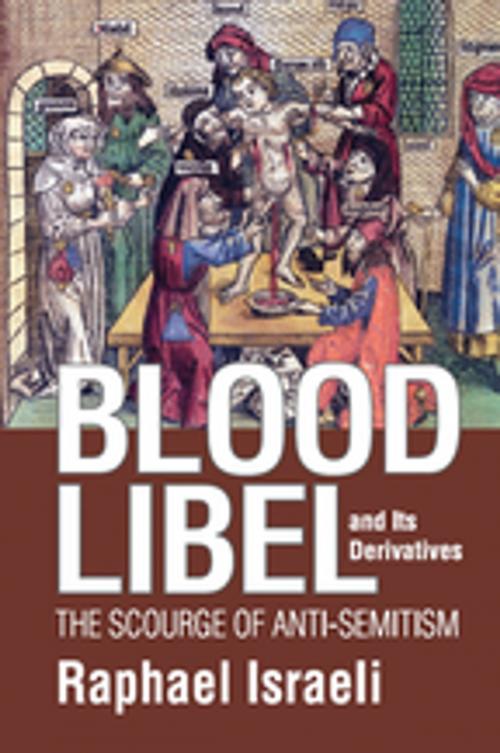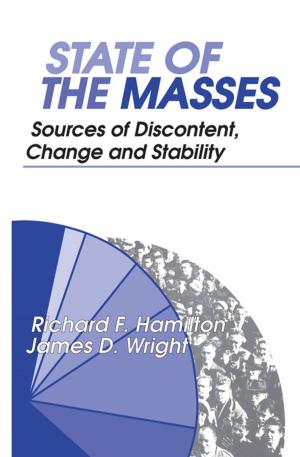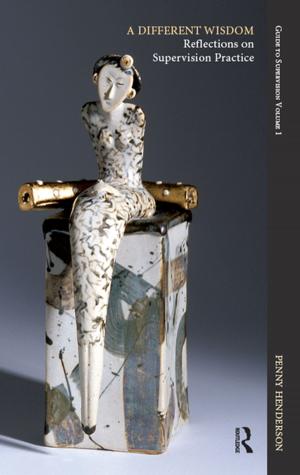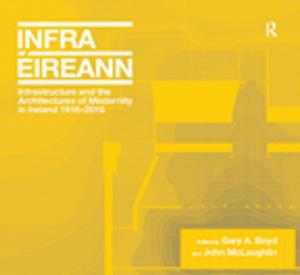Blood Libel and Its Derivatives
The Scourge of Anti-Semitism
Nonfiction, Social & Cultural Studies, Social Science, Sociology, Religion & Spirituality| Author: | Raphael Israeli | ISBN: | 9781351297189 |
| Publisher: | Taylor and Francis | Publication: | September 8, 2017 |
| Imprint: | Routledge | Language: | English |
| Author: | Raphael Israeli |
| ISBN: | 9781351297189 |
| Publisher: | Taylor and Francis |
| Publication: | September 8, 2017 |
| Imprint: | Routledge |
| Language: | English |
At the doorstep of the twenty-first century, one would expect that medieval concepts such as blood libel—the accusation that Jews kill children to use their blood in religious ritual—would have been discarded by any civilized human being. Certainly in the Christian world, where the story originated and endured for centuries, modern attitudes have nearly erased these barbaric accusations. But in Arab and Islamic worlds, where enmity towards Israel and Zionism has conditioned beliefs, attitudes, positions, and fantasies, blood libel and similar charges are still part of life.
Most people are unaware of the history of blood libel and do not perceive links between it and many of the false accusations currently hurled against the state of Israel. Raphael Israeli argues that individuals and organizations guilty of human rights crimes project crimes onto Israel to avoid awareness of their own guilt. Certainly when countries ruled by dictators set the agenda of the UN Council for human rights, Israel is consistently censured and condemned.
Accusations of "apartheid" and charges of discrimination against Muslims are frequently made. Israel is accused of plots against Muslims in order to harm their productive sectors, of using weapons of mass destruction to commit "genocide" against Arabs, of injecting poisonous substances into Palestinian children, of poisoning Arab lands under the guise of "agricultural aid," and of laying siege to peaceful citizens. All of these charges are derivatives of blood libel and have been adopted by Middle East Jihadists in their struggle against Israel. This volume aims to explain the origins of the charge of blood libel and define the ways its derivatives have achieved acceptance in certain parts of the world today.
At the doorstep of the twenty-first century, one would expect that medieval concepts such as blood libel—the accusation that Jews kill children to use their blood in religious ritual—would have been discarded by any civilized human being. Certainly in the Christian world, where the story originated and endured for centuries, modern attitudes have nearly erased these barbaric accusations. But in Arab and Islamic worlds, where enmity towards Israel and Zionism has conditioned beliefs, attitudes, positions, and fantasies, blood libel and similar charges are still part of life.
Most people are unaware of the history of blood libel and do not perceive links between it and many of the false accusations currently hurled against the state of Israel. Raphael Israeli argues that individuals and organizations guilty of human rights crimes project crimes onto Israel to avoid awareness of their own guilt. Certainly when countries ruled by dictators set the agenda of the UN Council for human rights, Israel is consistently censured and condemned.
Accusations of "apartheid" and charges of discrimination against Muslims are frequently made. Israel is accused of plots against Muslims in order to harm their productive sectors, of using weapons of mass destruction to commit "genocide" against Arabs, of injecting poisonous substances into Palestinian children, of poisoning Arab lands under the guise of "agricultural aid," and of laying siege to peaceful citizens. All of these charges are derivatives of blood libel and have been adopted by Middle East Jihadists in their struggle against Israel. This volume aims to explain the origins of the charge of blood libel and define the ways its derivatives have achieved acceptance in certain parts of the world today.















